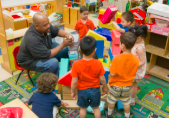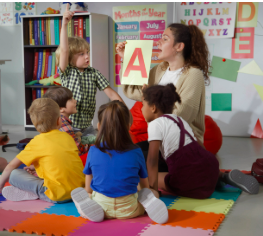Every child deserves the opportunity to learn, grow, and thrive in a nurturing environment, and this is especially true for young learners with special needs. Preschool is a foundational stage in a child’s development, and with the right support strategies, children of all abilities can feel included, valued, and capable of success.
Creating an Inclusive Classroom Environment
An inclusive preschool classroom welcomes all children, regardless of their developmental differences. Teachers can create a warm and accepting space by incorporating visual schedules, sensory-friendly areas, and flexible seating. These thoughtful touches help children feel more comfortable and better able to participate in daily routines.
Understanding Individual Strengths and Needs
Each child with special needs is unique. Some may have challenges with speech, movement, or behavior, while others may process information differently. Getting to know each child’s strengths allows educators to tailor learning experiences that build confidence and independence. Collaborating with families and specialists can offer deeper insight into a child’s preferred ways of learning and communicating.
Using Developmentally Appropriate Practices
Hands-on activities, clear instructions, and simple routines can support learning and reduce frustration. Educators may use visual aids, gestures, or assistive tools to help children understand and complete tasks. These strategies not only benefit children with special needs but often enhance learning for the entire class.
Fostering Peer Relationships
Friendships are an essential part of preschool life. Teachers can encourage positive peer interactions through cooperative play, group projects, and guided social activities. When children learn to work and play together, they build empathy, patience, and communication skills that benefit everyone.
Partnering with Families
Families play a central role in a child’s early education journey. Regular communication between teachers and caregivers helps ensure consistency between home and school environments. Sharing updates, celebrating progress, and discussing challenges together fosters trust and provides the child with a strong circle of support.
Providing Ongoing Professional Development
Educators who receive ongoing training in special education and inclusive teaching techniques are better equipped to meet diverse needs in the classroom. Workshops, mentorship, and collaboration with specialists help teachers grow in their ability to support every learner effectively.
Encouraging Confidence and Joy in Learning
Children with special needs often blossom when they feel seen, heard, and supported. When a preschool fosters a sense of belonging and encourages each child to reach their potential, it sets the stage for lifelong learning and personal growth.


